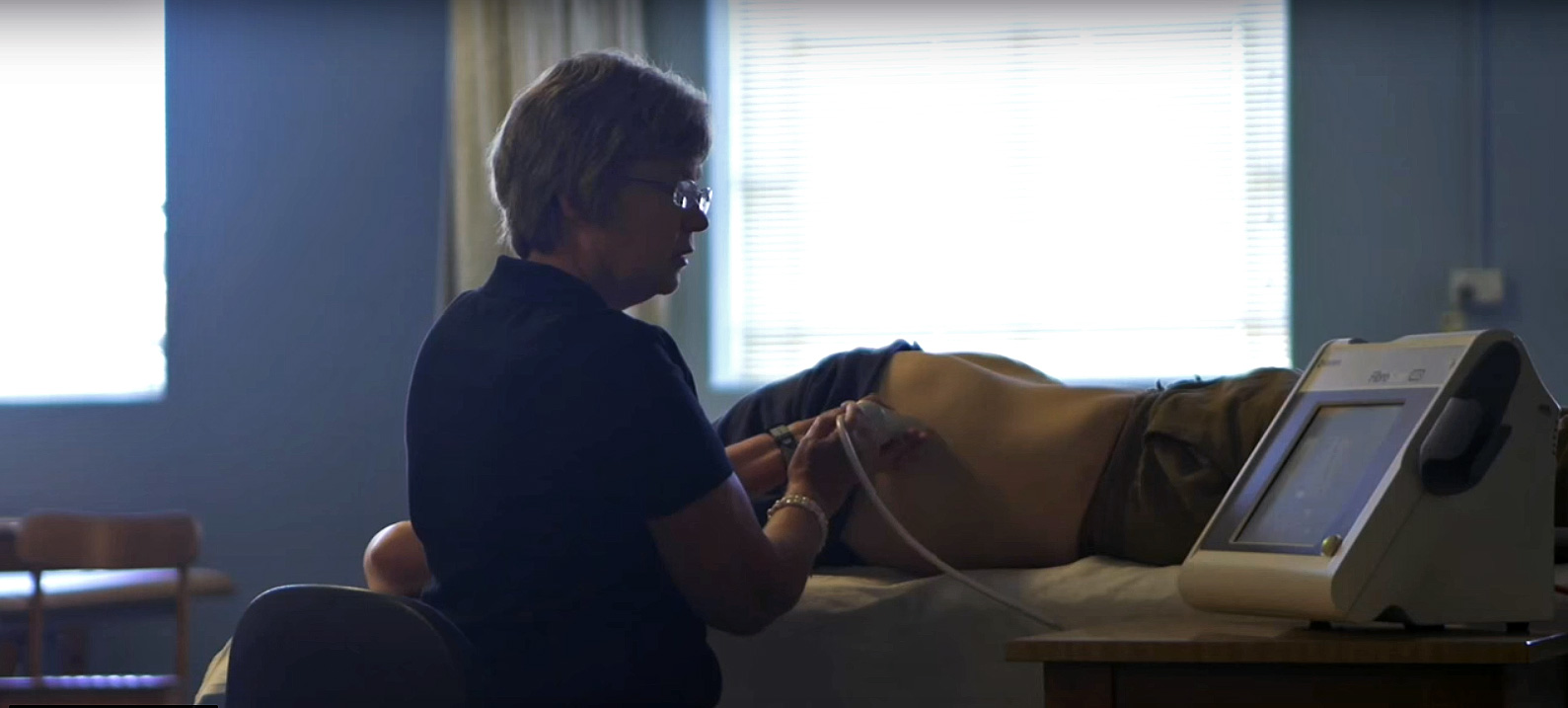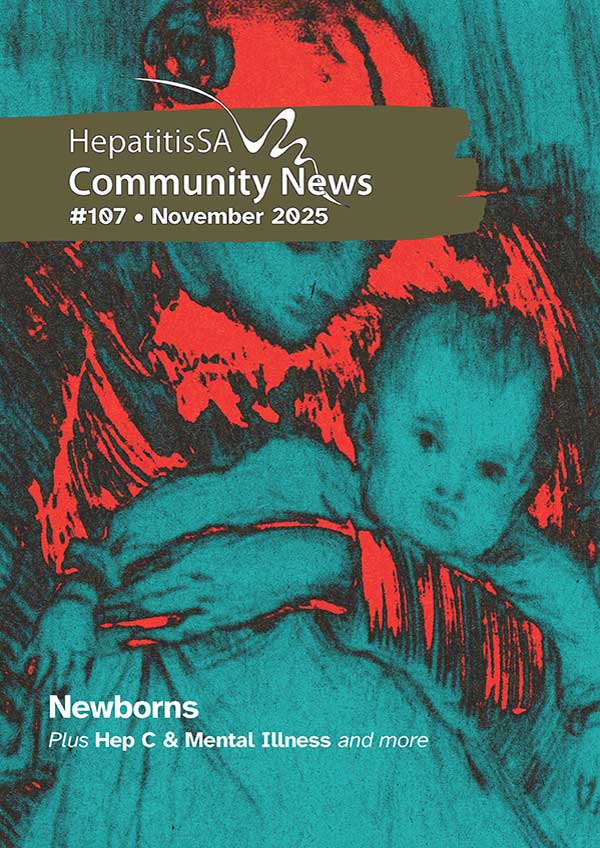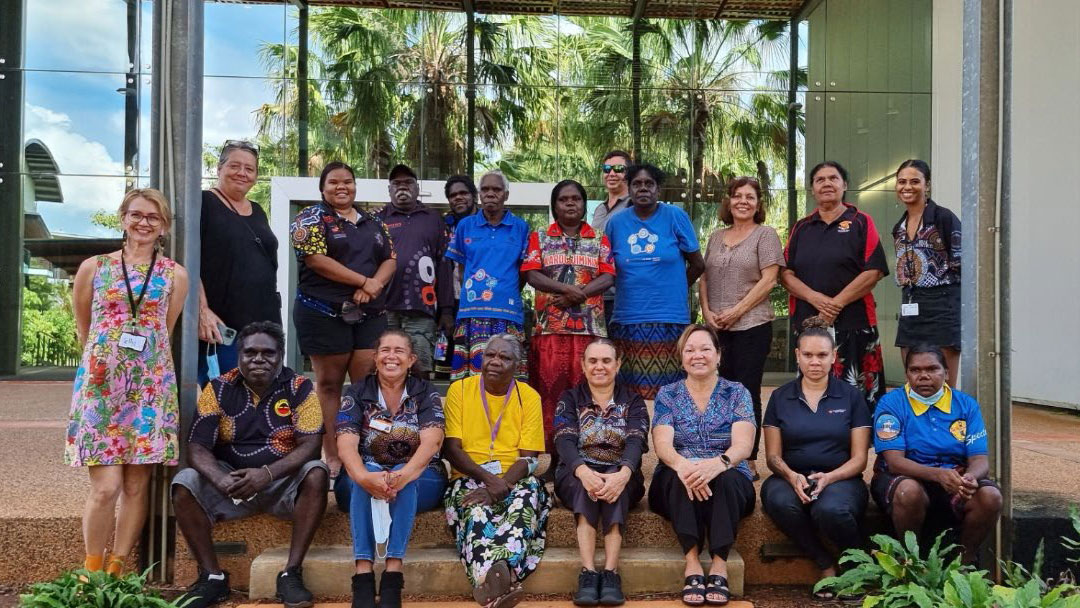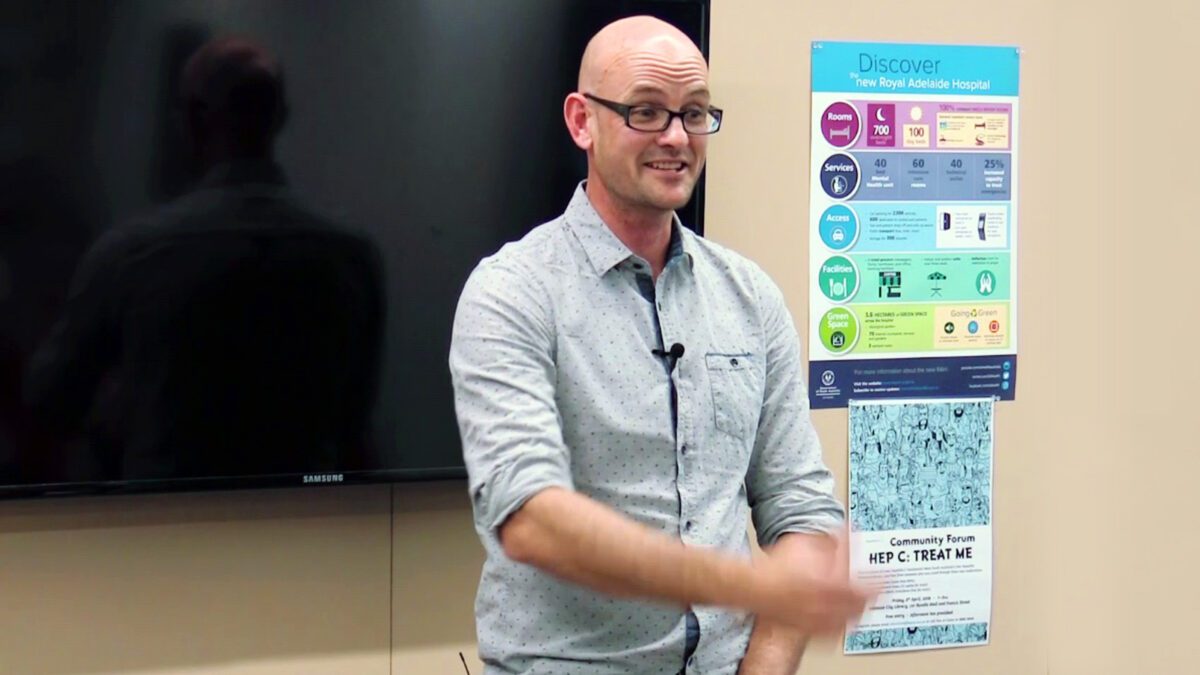Kim had just started on the new hepatitis C treatment and things seemed to be going well until he realised he was unable to get his new supply of tablets because he forgot to give his local pharmacist sufficient notice.
His script could not be filled by the time he needed it. This break, early in his treatment, could affect the outcome. In desperation, he told his viral hepatitis nurse of his predicament. The nurses organised a supply and dropped it off to him on a weekend.
The nurses say this is something they can’t do on a regular basis, but it is one example of how this team of dedicated South Australian nurses go out of their way to support the people they are caring for, to ensure the best outcomes.
In another instance, a nurse visiting regional areas heard that a client, due for an appointment at a hospital, had hitchhiked to another town after a psychotic episode. She tracked the person down and escorted him back to attend the appointment.
Tips and Resources
It is also not uncommon for viral hepatitis nurses to call people whom they have not seen in a while, to follow up on their treatment progress, or for them to drop by on their way home after work with helpful resources (like recipe books) which they think might help the person through a challenging period
One nurse taught a simple, helpful phrase to patients with limited English, to request for their medicine at the hospital pharmacy. She then arranged for the pharmacist to call her when people presented at the pharmacy and spoke that phrase.
SA Health’s viral hepatitis nurses provide specialist care to South Australians living with hepatitis B or C, but more than that, they are the friendly, caring faces that see people through preparing for, and completing, treatment.
These mostly community-based clinical practice consultants work with major hospital services, general practitioners and community health services to deliver accessible care on the ground to people who need them most.
…they are the friendly, caring faces that see people through preparing for, and completing, treatment.
The South Australian viral hepatitis nurses service metropolitan Adelaide by geographical regions: Central, North and South. They are based at community clinics as well as at the major hospitals: Royal Adelaide Hospital, Queen Elizabeth Hospital, Lyell McEwan Hospital and Flinders Medical Centre.
Services
The nurses provide pre-test information, ensure you get all the necessary tests and support you through treatment. They are also able to provide referrals to GPs if you prefer to have your treatment managed by your GP instead of a specialist in a hospital.
South Australian viral hepatitis nurses also provide outreach fibroscan services in community health centres, general practice clinics and clean needle service sites to engage with clients and provide education around viral hepatitis treatment options.
The nurses are also able to connect people with other useful services which may help support them through difficult decisions. For more details, see Community News post Talk to a Nurse.
In summary, viral hepatitis nurses can provide
– General information
– Advice and assistance to GPs with patient work-up
– Education and support for patients diagnosed with viral hepatitis
– Streamlining of referrals and supporting patients when attending hospitals
– Support and guidance during shared care treatment and management
– Support and information after treatment is complete.
The services are all free of charge.
If you are a South Australian considering treatment for viral hepatitis, and are unsure of how to proceed, your first port of call should be the viral hepatitis nurses.
For contact details, visit https://hepsa.asn.au/services/liver-clinics-in-sa
Talk to a Nurse | Managing chronic hepatitis B | Role of viral hepatitis nurses
Last updated 20 January 2026
More from:
Enjoyed this article? Subscribe to be notified whenever we publish new stories.
Subscribe for Updates





